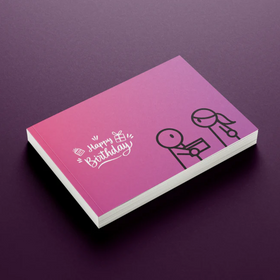on all orders

When Is Diwali 2024?
Diwali 2024: Thu, Oct 31, 2024 - Sat, Nov 2, 2024
Diwali, also known as the Festival of Lights, is one of the most important and widely celebrated festivals in Hindu culture. It symbolizes the triumph of good over evil, light over darkness, and knowledge over ignorance. The festival is marked by lighting diyas (oil lamps), exchanging gifts, enjoying traditional foods, and participating in puja (prayer) ceremonies.
As Diwali approaches each year, many Hindus eagerly anticipate its arrival and begin preparing for the festivities. However, due to the lunar nature of the Hindu calendar, the date of Diwali can vary from year to year. In this article, we will explore when Diwali 2024 will take place and delve into some of the traditions surrounding this beloved holiday.
The Significance of Diwali in Hindu Culture
The festival of Diwali holds great cultural and religious significance in Hinduism, symbolizing the victory of light over darkness and knowledge over ignorance. It is one of the most widely celebrated festivals across India and other parts of the world where Hindus reside. The importance of this festival lies in its celebration as a symbol of hope, positivity, and prosperity.
Diwali marks the return of Lord Rama to Ayodhya after his 14-year-long exile and victorious battle against Ravana, the demon king. This day also signifies Lakshmi Puja, worshiping Goddess Lakshmi for wealth and prosperity. The celebration begins with cleaning homes and offices to welcome good luck on this auspicious occasion. Lighting diyas (lamps) all around houses is believed to dispel darkness from our lives.
The festival brings people together to celebrate love, unity, forgiveness, and exchange sweets among family members and friends. Fireworks are also an integral part of Diwali celebrations which add grandeur to the festivities. Overall, Diwali is a time when families gather together for prayers, feasting on delicious food items like sweets made especially for this occasion that make it a special time filled with joyous moments.
Understanding the Lunar Calendar and Diwali's Date
Understanding the lunar cycle and its influence on traditional Hindu festivals can help us predict their dates accurately. The lunar calendar, which is based on the cycles of the moon, has a significant impact on determining the date of Diwali. Unlike the Gregorian calendar, which follows a solar cycle and includes 365 days in a year, the lunar calendar comprises 354 days.
Diwali falls on Amavasya or the new moon day in Kartik month, according to Hindu mythology. Since it is celebrated based on the lunar calendar, its date varies every year. To calculate Diwali's exact date each year requires astronomical calculations that involve assessing various factors such as planetary positions and phases of the moon. For instance, this assessment helps determine when Amavasya falls for specific years and thereby predicts Diwali's date accurately.
In 2024, Diwali will fall on Friday, November 1st. This prediction is possible because of meticulous astronomical calculations that take place months before Diwali each year using sophisticated software tools designed for this purpose alone. Understanding how these tools work enables scholars to make accurate predictions about when traditional festivals like Diwali will occur each year based solely on precise scientific calculations rather than guesswork or intuition.
Preparations and Traditions for Diwali 2024
Symbolic representations of light and prosperity are central to the elaborate preparations and age-old traditions that mark Diwali, one of the most significant festivals in Hindu culture. As Diwali 2024 approaches, families across India are gearing up for an array of festivities that typically last for five days. Preparations begin several weeks before the festival as people clean their homes, decorate them with lights and rangolis, and shop for new clothes.
Decor ideas play a crucial role in making Diwali celebrations memorable. Homes are adorned with diyas or earthen lamps to create a warm ambiance that symbolizes hope and positivity. Intricate rangolis made from rice flour or colored sand add color to floors and doorways while flowers in vibrant hues bring a touch of nature indoors. Additionally, many households opt for LED lights that come in various shapes like stars or lanterns, creating an enchanting atmosphere.
Festive foods also form an integral part of Diwali celebrations as people indulge in traditional sweets like gulab jamun, rasgulla, laddoo, barfi among others. Home-cooked delicacies such as chole bhature (a spicy chickpea curry served with fried bread), samosas (savory pastries filled with spiced potatoes), pakoras (fritters) and biryani (a fragrant rice dish) make up the main course meals. With so much delicious food on offer it's no wonder why Diwali is known as the 'festival of feasts'.





Leave a comment